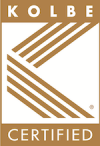 What exactly is the Kolbe System? We’re so glad you asked! This post will tell you everything you could ever want to know about the Kolbe System and how Priority VA is using it to help and support our Clients.
What exactly is the Kolbe System? We’re so glad you asked! This post will tell you everything you could ever want to know about the Kolbe System and how Priority VA is using it to help and support our Clients.
Here’s some quick TL:DR links if you’d like to skip around!
Kolbe System™
Three Parts of the Mind
Exploring Instincts
Business Applications
Action Modes
At Priority VA, we are Kolbe Certified™ Consultants. What does that mean for our clients? Read on.
The Kolbe System™
is a revolutionary, proprietary analysis tool based on empirical research and years of experience. Its foundation is built on the fact that our “innate talents” are unchanging and constant. This is in stark contrast to our skills and learned abilities — which are in flux throughout our lives.
The Kolbe system identifies individuals by the unique ways in which they initiate solutions, respond to situations, and prevent problems. The Kolbe System has identified 12 instinctive methods of creative problem solving.
However, it’s important to note that one person’s approach is not deemed “better” than another. Rather, Kolbe studies have shown that having the right mix of individual types (or understanding the current mix) means greater productivity in the workplace — and better results no matter what the objective.
At the same time, Kolbe helps each individual to understand his or her inherent strengths — and how to use those strengths to better advantage in their personal and professional lives.
The video spoke about the three parts of the mind. Keep reading to understand more about the different parts and which assessments are used for each.
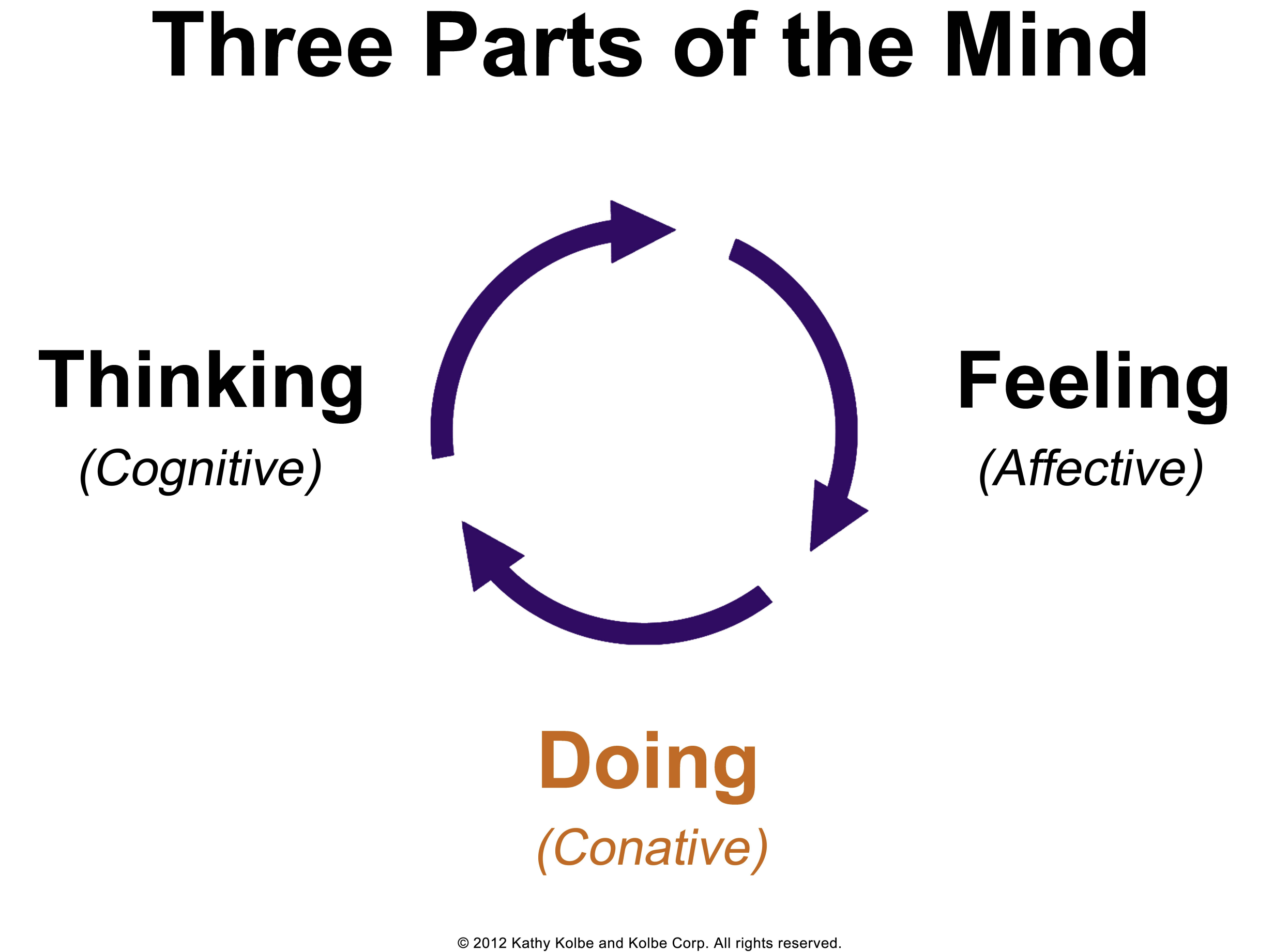
Three Parts of the Mind
Every day, we operate using three parts of the mind: the Cognitive, or thinking part, the Affective, or feeling part, and the Conative, or doing part.
The Cognitive part of the mind is what you can do, what you are capable of doing. It relates to:
- IQ
- Skills
- Reason
- Knowledge
- Experience
- Education
Common cognitive tests are the SAT or ACT, skill assessments, and other intelligence tests. As we learn and grow over the course of our lifetime, the results of these tests change.
The Affective part of the mind is what you want to do. It relates to:
- Desires
- Motivation
- Attitudes
- Preferences
- Emotions
- Values
Affective tests are better known as personality tests, such as Myers Briggs or Enneagram. As we grow and change over the course of our lifetime, the results of these tests change.
The Conative part of the mind is what you do and how you take action. It relates to:
- Drive
- Necessity
- Innate Force
- Instinct
- Mental Energy
- Talents
Kolbe Conative Indexes® identify and leverage instinct-based, or natural, abilities. It is the only validated assessment of the conative part of the mind.
Assessments have historically focused on measuring the cognitive (IQ) and the affective (personality) parts of the mind. While this can be helpful in selecting, training and managing people, they only offer a partial picture of a person’s full potential. IQ scores are influenced by opportunities to learn, and being smart doesn’t necessarily predict success. Personality traits are situational, and people who seem agreeable don’t always do a job successfully or accomplish team goals.
Understanding how instincts combine with intelligence and personality will help you create and maintain a less stressful work environment with employees who are more satisfied and productive:
- Identify the talent you have on board and the instinctive strengths they bring to the table
- Lead team members to achieve greater productivity and efficiency
- Hire More Effectively
Exploring Instincts
Equality: One of the ways in which we are truly equal is that we all have instincts.
No Right or Wrong: You do not need to improve your instincts. They are your strengths, or best method of operation.
Unchanging: Just as people’s physical appearance reflects their DNA, actions reflect instincts. Instincts are as ingrained and unchangeable as DNA, or your thumbprint.
Predictive/Reliable: The Kolbe A™ Index has been proven to predict behavior patterns and performance success, both in individual and team settings.
Unbiased: There are no differences in this instrument that are related to gender, age, race, ethnic origin or cultural background. It is completely unbiased.
These three parts of the mind, Cognitive, Affective and Conative, lead to three distinct types of people problems. Cognitive and affective people problems are often screened out as a part of the hiring process. Yet, the conative part of the mind is rarely addressed. Conative people problems are often mistaken for other issues.
Cognitive problems – Missing skills, knowledge, judgement
Affective problems – Low motivation, incompatible values, or personality conflicts
Conative problems – Mismatch between individual strengths and tasks
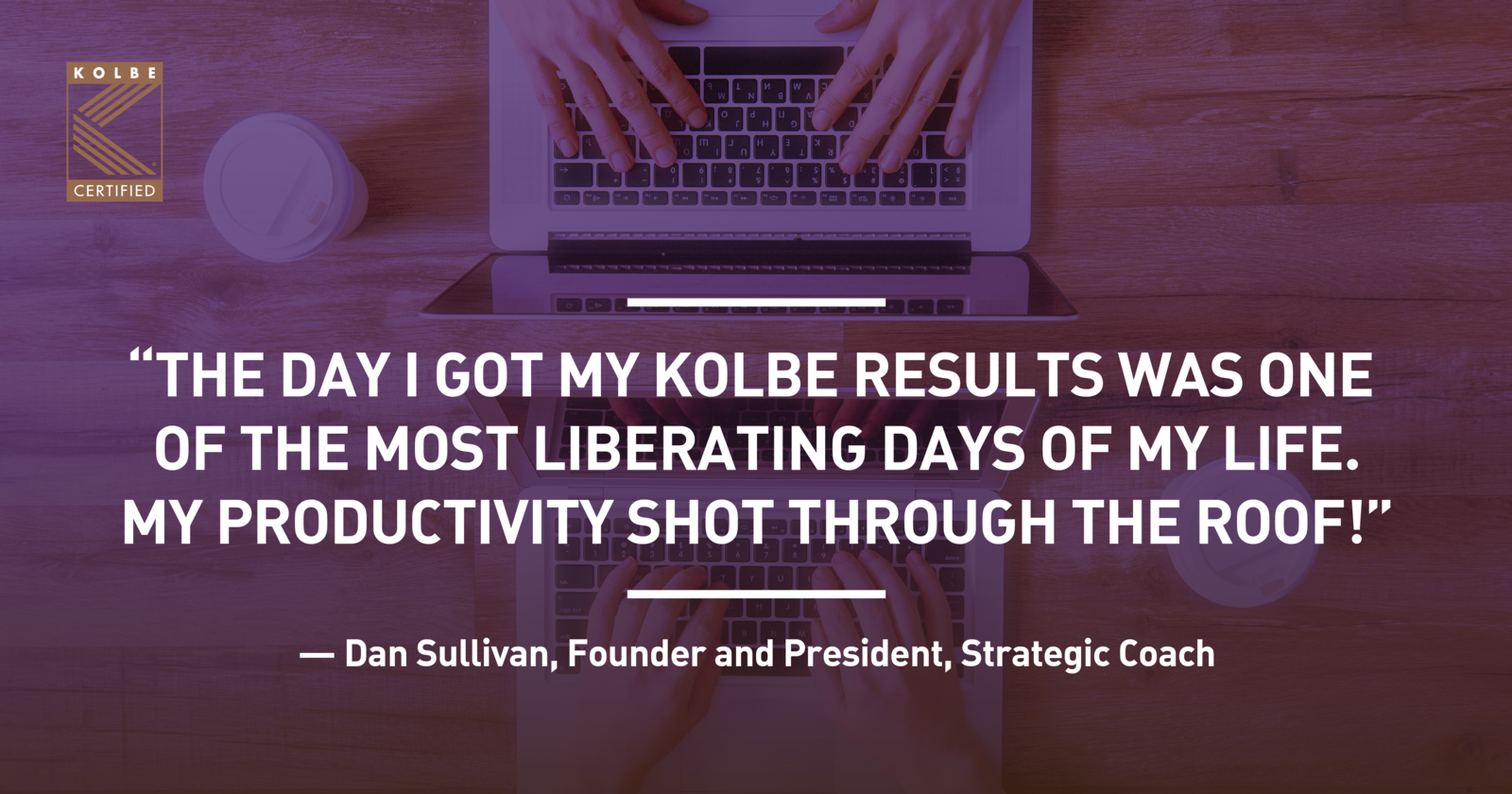
Business Applications
The Kolbe System has applications for individuals, teams and organizations.
By using the Kolbe Systems, Individuals can:
- Improve Efficiency
- Develop Leaders
- Increase Engagement
By using the Kolbe Systems, Teams can:
- Enhance Communication
- Collaborate Effectively
- Boost Performance
By using the Kolbe Systems, Organizations can:
- Hire & Retain Successfully
- Get the Right People in Right Role
- Amplify Culture
Kolbe Corp’s proprietary research has shown that our natural creative instincts shape how we accomplish tasks and solve problems in four distinctive behavior patterns, or Action Modes®.
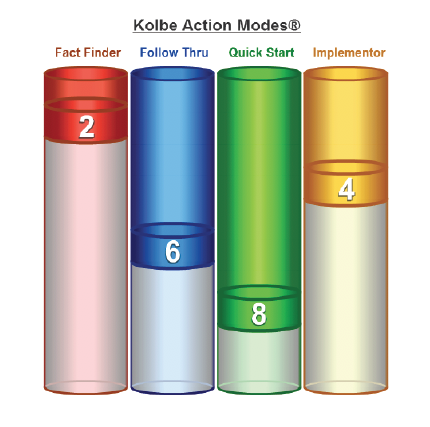
Action Modes
Fact Finder – the instinctive way we gather and share information. Someone who Initiates on the Fact Finder weighs the pros and cons of what the team is trying to do and makes sure that decisions are made with data.
Follow Thru – the instinctive way we arrange and design. Someone who Initiates on Follow Thru will make sure there is a structure in place (timeline, agendas, to-do-lists, etc).
Quick Start – the instinctive way we handle risk and uncertainty. Someone who Initiates on Quick Start will jump right in and thrive in the unknown.
Implementor – the instinctive way we handle space and tangibles. Someone who Initiates on Implementor needs a physical tool to unleash their hands-on energy.
The first step in the Kolbe System is to determine the instinctive traits within an organization. This is done with the Kolbe A™ Index. The four-number Index result identifies an individual’s natural tendencies in each Action Mode and determines his or her modus operandi or MO. The numerical values indicate how a person uses their instincts to prevent problems, respond to opportunities and initiate solutions.
It is important to note that a short line in an Action Mode does not mean a deficiency. Koble identifies 12 strengths, three in each Action Mode.
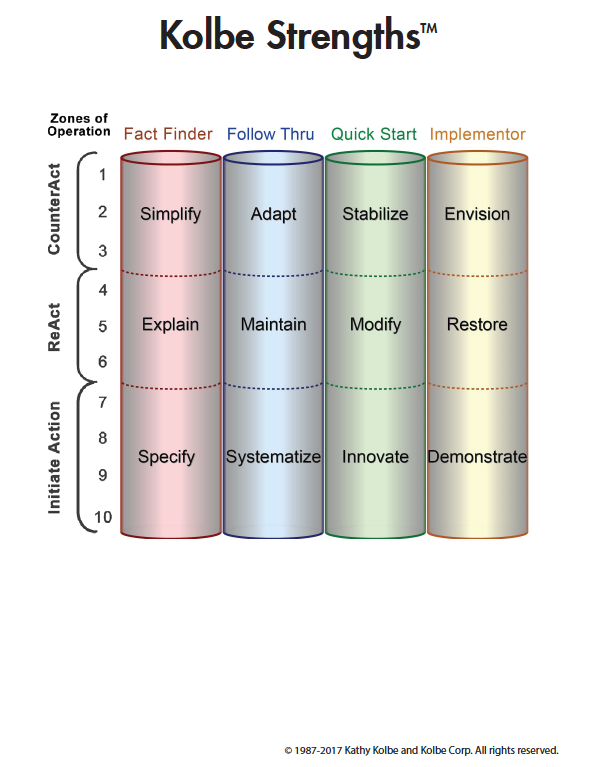
There are three main indices that facilitate finding the best candidate for a position.
The Kolbe A™ Index measures and validates a person’ natural talents – the instinctive method of operation (MO) that enables you to be your best.
The Kolbe B™ Index identifies a person’s job-related conative self-expectations.
The Kolbe C™ Index identifies the characteristics a supervisor requires for success in a specific job.
As Certified Kolbe Consultants, we use the Kolbe System to identify the best candidates for our clients.
If you’re ready to see what Priority VA and the Kolbe System can do for your business, schedule a Free Strategy Call today.

If you’re ready to see what Priority VA and the Kolbe System can do for your business, schedule a strategy call today.





